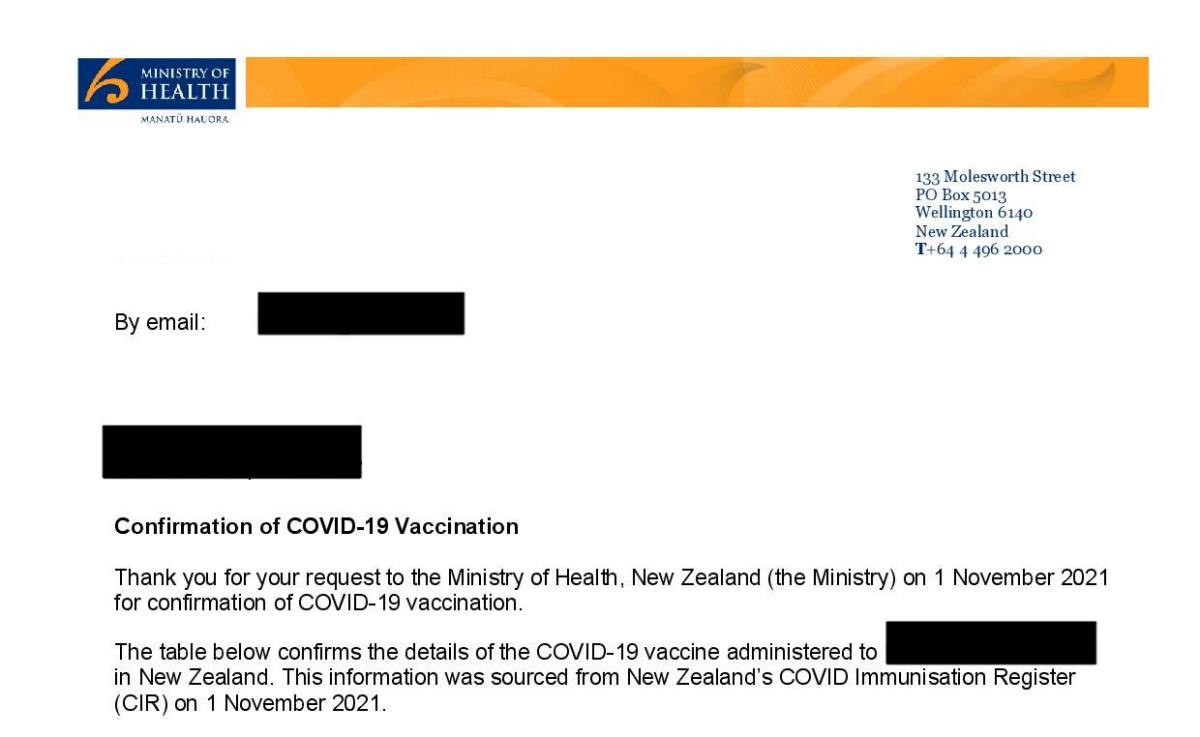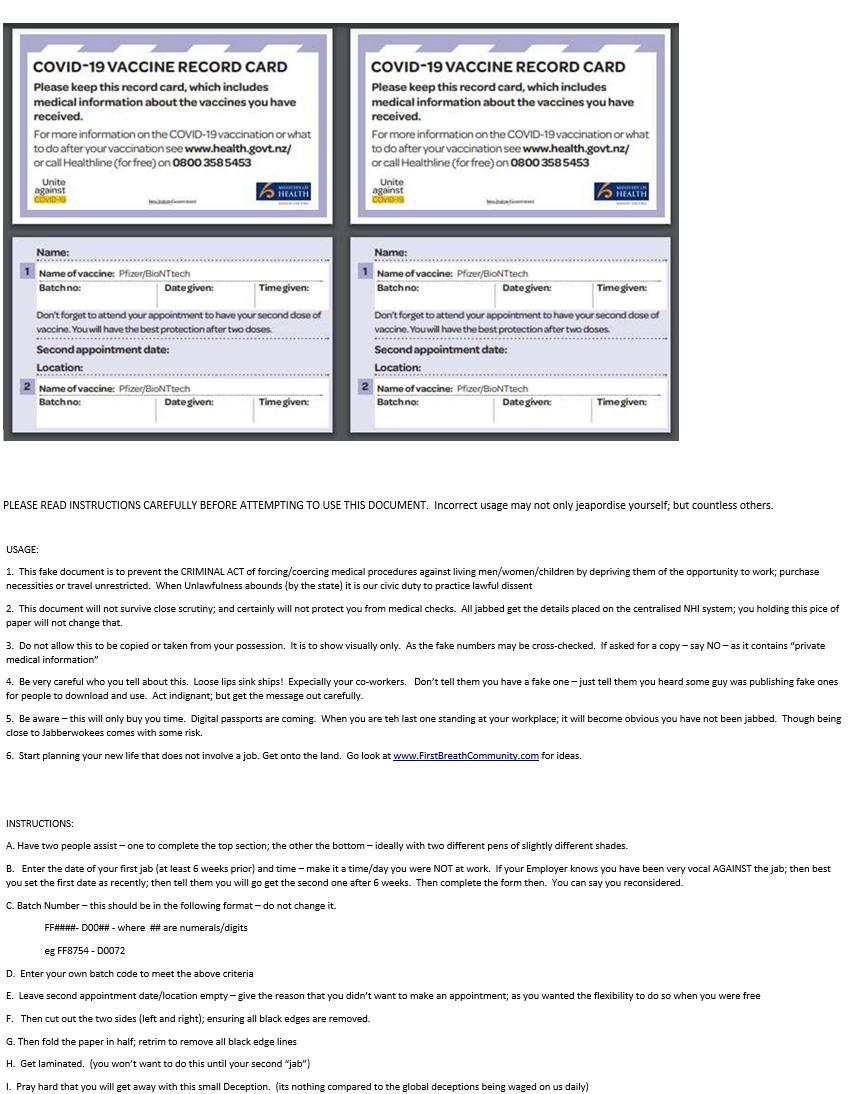A Kiwi worker suspects many unvaccinated people have already fooled their employers into thinking they've had the jab, despite a digital vaccine record being unveiled by the Ministry of Health this week.
My Covid Record was announced in an email to Kiwis on Thursday, marking a new way for New Zealanders to view their vaccination records - the first step on the path towards vaccine certificates, which the Government has promised will arrive before the end of the month.
But a worker says the other document Kiwis use to prove their vaccination status - a vaccination confirmation letter from the Ministry of Health - is way too easy to forge, having discovered he was able to simply edit a PDF version by using free, easily accessible software.
The worker, who wishes to remain anonymous, contacted Newshub this week after discovering he was able to change the information on the letter - including details like his name and whether he'd had the jab - to say whatever he wanted it to.
"I wondered whether it could be edited. Just with a simple click on a [PDF] text editor I could edit it - I could even take the signature that's on there and put it onto another document," he explained.
He said he's not an anti-vaxxer and had only checked to see if the letter could be edited because he was curious. His company had insisted on proof of vaccination to continue with them, he said, as some of his colleagues crossed regional boundaries.
He expected many others facing vaccine mandates at their workplaces would've worked out how to change the details on their own vaccination letters, either for their own use or to help another.
"Anyone can do that; they don't need any skill whatsoever. They just need free software," he said.
"You're going to get people who want an easy way out… you get anti-vaxxers, and if they're getting hassled because they now need to go somewhere, it's so easy [for them to make a forgery]."

The worker told Newshub the ministry should have made the letters more difficult to edit.
"It's not really secure because you've got borders that we have to cross - and they're not going to go electronically and check, they're going to look at a piece of paper and trust," he said.
"A document like that coming from an institution should be a secure document. You shouldn't be able to edit it as easily as you can. Anyone can forge anything, but to [be able to] do it that easily is a bit silly."
And it's not the only COVID-19 vaccine document vulnerable to forgery.
Newshub has this week seen templates of vaccine record cards doing the rounds in anti-vaxx Telegram communities, along with instructions on how to make them appear more legitimate and how to use them to deceive your employer.
The cards, which are handed out at vaccination clinics after receiving the first jab, are not official proof of vaccination but have details such as the batch number used and the date and time the doses were administered, which can be used as evidence you've been immunised.
Fake ones can appear genuine if not checked thoroughly.
"Have two people assist - one to complete the top section; the other the bottom - ideally with two different pens of slightly different shades," the instructions that come with the card read.

"Enter the date of your first jab (at least 6 weeks prior) and time – make it a time/day you were NOT at work. If your employer knows you have been very vocal AGAINST the jab; then best you set the first date as recently; then tell them you will go get the second one after 6 weeks."
Users of the phoney cards are also advised not to let anyone else handle them nor tell colleagues about them, and are shown how to make small cosmetic changes to make them appear more legitimate.
Michael Dreyer, the Ministry of Health's group manager of national digital services, told Newshub the vaccination letters the worker was able to edit were just an "interim solution" for people who needed to prove they've received the jab to travel overseas.
He said anyone who wants such a letter has to agree to a declaration when making their request, and points out that forgery of legal documents is punishable under the Crimes Act 1961.
Dreyer said there has been a recent increase in the number of people requesting the letters who aren't travelling overseas, but said once vaccination certificates and QR codes are available, people who need to prove their vaccination status will no longer need to request one.
"Vaccination certificates will be available from late November and will contain a unique QR code. These can either be printed or saved digitally on a smartphone," he said.
"Work is underway to operationalise the policies around how the certificates will be used in practice. Work is also underway to plan and deliver the necessary training. We are working with the sector to ensure that the technology will be fit for purpose and compatible with existing tools where possible."
Vaccination certificates are anticipated to roughly coincide with the introduction of a new COVID-19 response framework dubbed the 'traffic light' system, which will usurp the current alert level system.
The traffic light system will rely heavily on vaccine certificates, as venues, events and gatherings of a certain size will only be open to those who are fully vaccinated.



